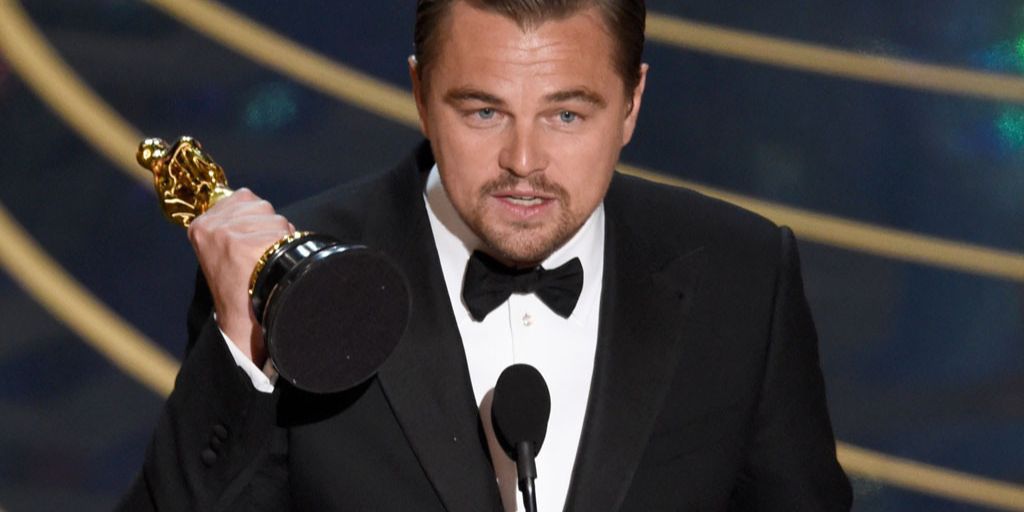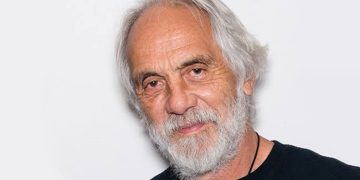Here is a list of the 28 Best Movies Of Leonardo DiCaprio that you must watch. Even though Leo DiCaprio has been one of the great movie stars for 20 years and grew up in front of the cameras, there is still something mysterious about him.
DiCaprio has spent a large portion of his career trying to defy our perceptions of him, going from matinee idol to grim poet to tortured soul and back again until ultimately settling into his comfort zone as possibly the most interesting and ambitious A-lister actively active in the last ten years.
Martin Scorsese, Steven Spielberg, Quentin Tarantino, Christopher Nolan, Baz Luhrmann, Clint Eastwood, Danny Boyle, and Woody Allen are just a few of the directors with whom he has collaborated five times, but none of their films seem as much like theirs as his.
With a career like DiCaprio’s, there is never a bad time to take a thorough look at his filmography. What particularly surprised us was that there weren’t any performances of sleepwalking here. Even when he doesn’t do well in a film, Leonardo DiCaprio always gives it his all and never chooses a role for selfish financial gain.
Above all, an actor is defined by the decisions he makes, and few performers constantly make more compelling decisions than Leonardo DiCaprio. Here are the 28 Best Movies Of Leonardo DiCaprio that are a must-watch.
1. The Aviator (2004)
Many of Leonardo DiCaprio’s best performances undermine or alter his attractiveness, enabling us to perceive the uglier, messier undercurrents beneath the enticing surface of his characters. That was never more evident than in Martin Scorsese’s Oscar-nominated biography.
Leo’s portrayal of Howard Hughes was difficult to fully understand at the time because he was still getting over his post-Titanic teen heartthrob status, but this was the role where he made his name as a major adult actor by vividly capturing Hughes’s fierce competitiveness and the increasingly erratic behavior that would prove to be his downfall.
Because we know he’s doomed and, to some extent, feel the same way, DiCaprio’s Hughes is a towering figure. However, by persistently fighting the eccentric’s demons, he paints a fascinating, oddly heroic picture of ambition at odds with mental collapse. The choice of one of our most attractive young actors to embody all of that in The Aviator was a stroke of genius on Scorsese’s side.
The Aviator has a very uniquely American quality to it, showing how we continue to strive for greatness even while everything around us falls apart. He was rewarded by DiCaprio with an incredible performance that is propelled by a core irony: He excelled in the role of a guy who was disintegrating.
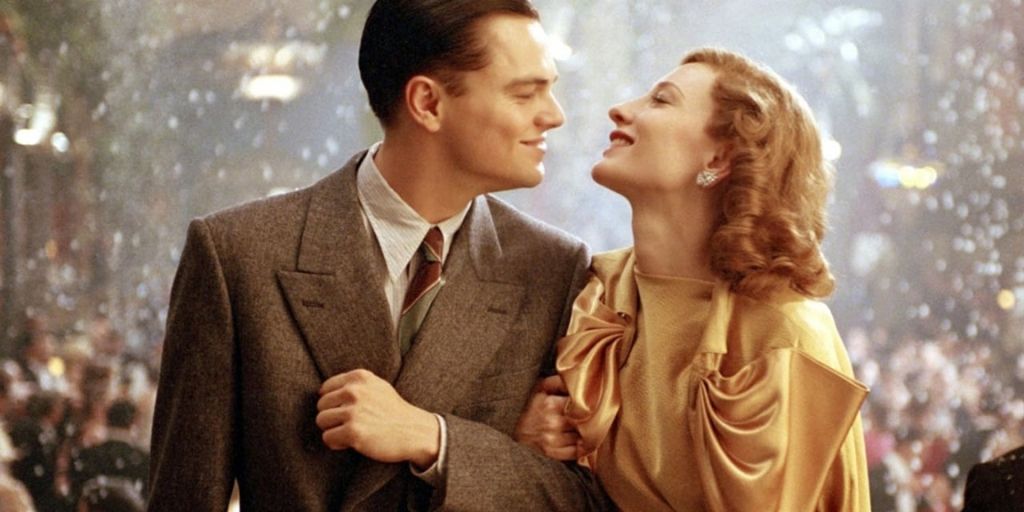
2. Once Upon a Time in Hollywood (2019)
In many respects, Leonardo DiCaprio’s performance is the heart of Quentin Tarantino’s daring, ambitious, and also surprisingly depressing homage to a bygone era of Los Angeles, despite the fact that Brad Pitt (justifiably) won the Oscar.
In many ways, Rick Dalton feels like one of DiCaprio’s most truly personal roles; the former Teen Beat idol who strove to be taken seriously now plays a man who can’t help but worry that his best days are behind him. DiCaprio didn’t quite nail his Tarantino debut as Calvin Candie in Django Unchained, but he’s perfect here. And battles a society that would have advanced without him.
DiCaprio, in this film, exhibits a vulnerability and sincerity that are unique for him personally as well as for his director. Not to mention how hilarious DiCaprio is in this movie; it’s genuinely enjoyable to watch him flounder around a pool while inebriated. And indeed, it has been discovered that he is a dynamo with a flamethrower.
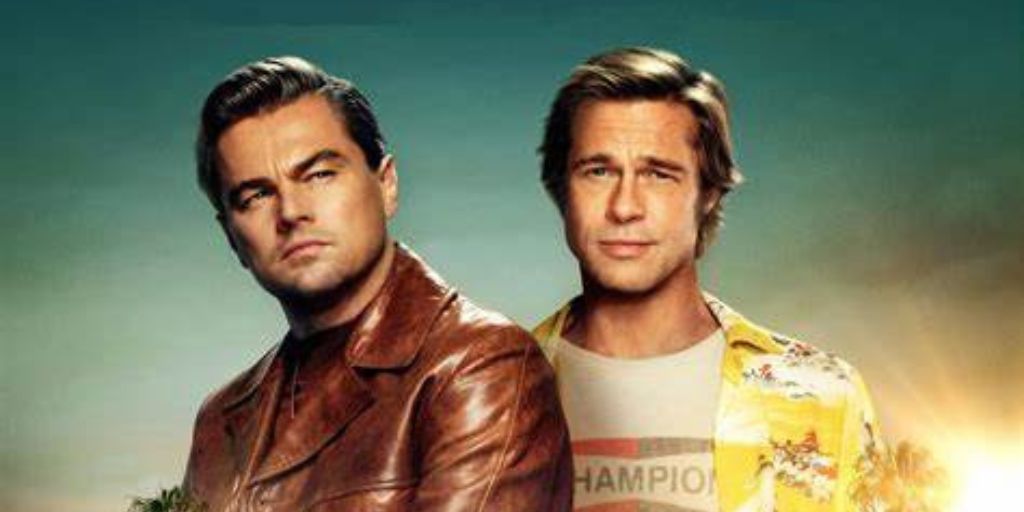
3. The Wolf of Wall Street (2013)
Four of Leo’s top five movies are directed by Martin Scorsese, as you may have observed by this point. These four drastically diverse performances are all excellent in their own right and serve as the clearest manifestation of DiCaprio’s tremendous skill set. Of course, this is the most current, and we believe it will age the best of all the items on our list.
Jordan Belfort is a truly repulsive character that DiCaprio is portraying, but he does so with such zeal and go-for-fuckin’-broke fervor that it’s perhaps not surprising that young Wall Street types have completely ignored the subtext and interpreted this film as the tale of a hero’s ascent to the top.
DiCaprio is wonderful from beginning to end, but we especially adore how he never winks, never concedes that this character is a monster, and never displays anything other than the utmost assurance that the world was created only for him to rule, desecrate, and exterminate. Not to mention the major revelation of DiCaprio’s performance: his complete mastery of physical humor. His drug-fueled slow-motion breakdown was right at home in a Marx Brothers film.
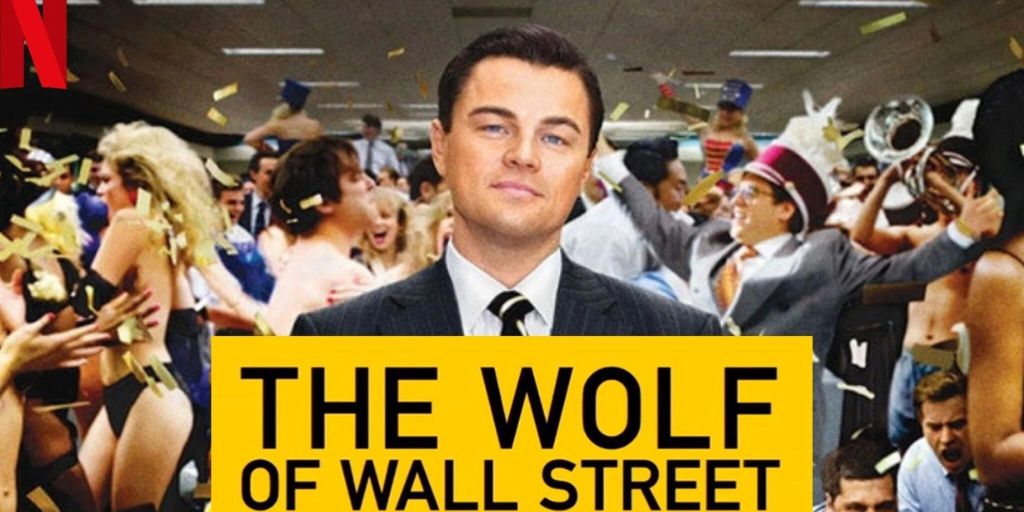
4. Shutter Island (2010)
Shutter Island, one of Leonardo DiCaprio’s most controversial movies, is a stylishly unsettling picture of a man who is progressively losing his mind. In his role as U.S. marshal Teddy Daniels, who believes he is searching for a missing prisoner on an island for the criminally insane, Leonardo DiCaprio must portray his psychosis honestly while also dropping ominous hints that his character is actually a patient struggling to accept the fact that his wife (Michelle Williams) killed their children.
Shutter Island is really about exploring the depths of misery and denial churning within this man, and DiCaprio is electrifying in that specific function, conveying all the grief that’s eating Teddy alive, whether or not you like the twist—we’ve argued before that it’s actually entirely beside the point. Leo provides a performance on par with Jimmy Stewart or Cary Grant, two former Hollywood giants who fearlessly went dark while working with a master filmmaker, so it seems sensible that Shutter Island is frequently compared to Hitchcock films.
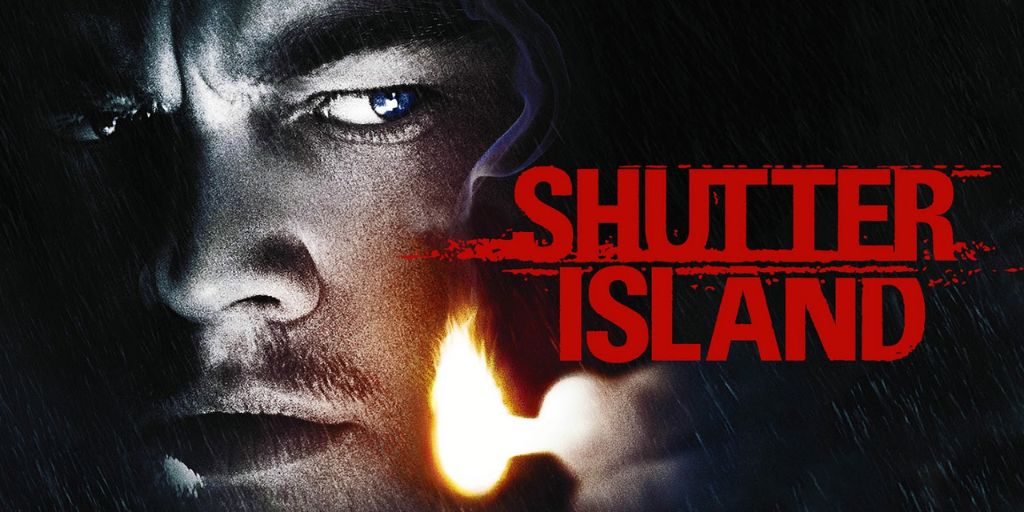
5. The Departed (2006)
The unsavory aspect of DiCaprio’s portrayal is that it may be his most valiant: DiCaprio has portrayed a number of hilarious leading men, but this one serves as the story’s moral compass. The only character in The Departed who actually makes a sacrifice for the greater good is Leonardo DiCaprio’s Billy, a dedicated cop who believes he is making a difference despite wilting under the strain of living undercover among jackals.
And it actually does him a lot of good. (It’s telling how many different adjectives we’ve used to describe DiCaprio’s characters on this list as cracking up, crumbling, and collapsing.) In a movie that was essentially made for scenery-chewing, DiCaprio has the least prominent role, but he is the main reason it succeeds.
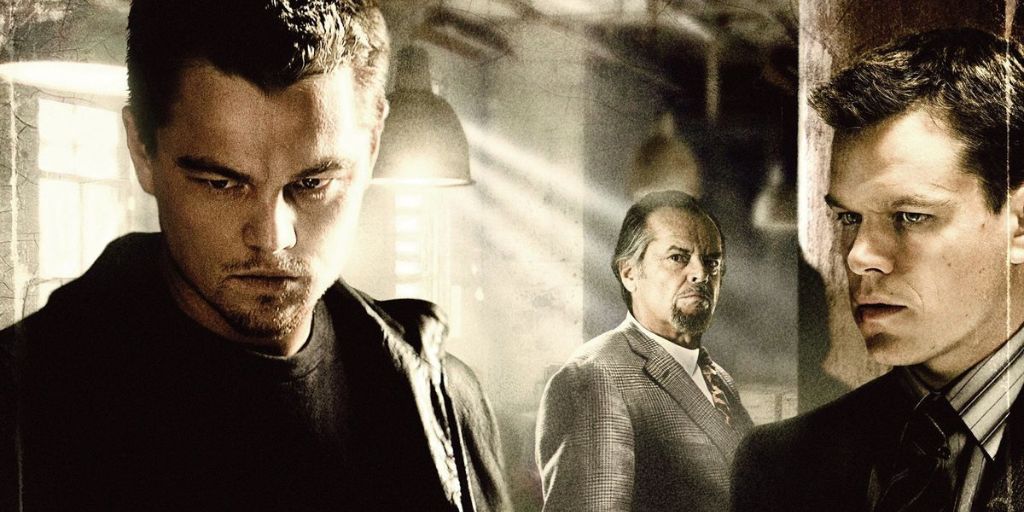
6. Don’s Plum (2001)
Since DiCaprio and Tobey Maguire sued to prevent the film from playing in theatres, it wasn’t viewed for six years. If you want to watch a painfully young Leonardo DiCaprio attempt to act like a “spoiled Hollywood kid” in front of a number of currents and future members of his famed “Pussy Posse,” then the fuss isn’t really worth it. (Writer-director R.D. Robb reportedly left the group as a result of this movie.)
This is a largely spontaneous mashup of every cliché from an independent film from the ’90s, plus a fair dose of misogyny that occasionally borders on MRA. Overall, Maguire seems more embarrassed than DiCaprio, who at least tries to give something. Who is the biggest hero in this situation? In her final acting job, Jenny Lewis manages to keep her composure.
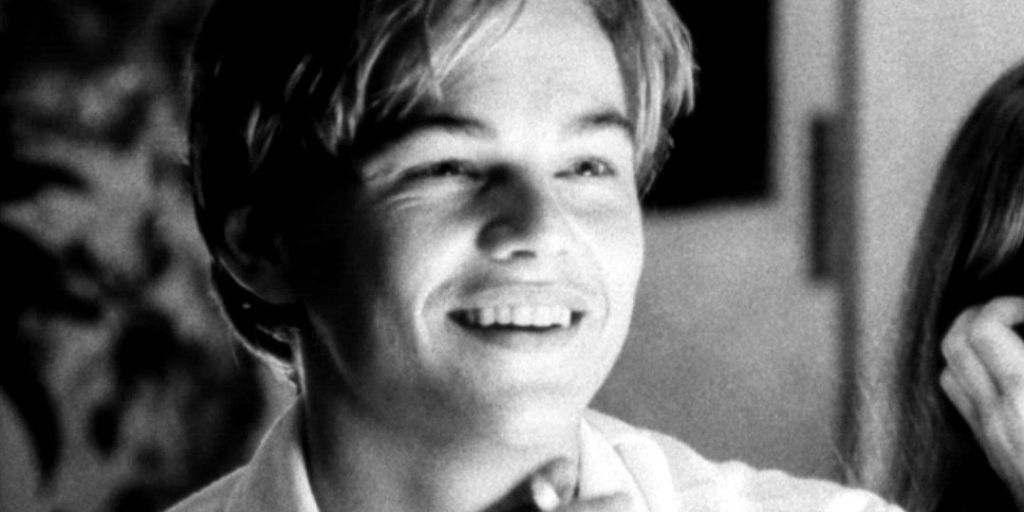
7. Total Eclipse (1995)
In hindsight, this romantic drama about the doomed romance between poets Arthur Rimbaud (DiCaprio) and Paul Verlaine (David Thewlis) ably demonstrates all the various traits that the budding star would incorporate significantly better down the line: the commitment to playing a complicated character, the live-wire intensity, and the matinee-idol-with-soul appeal.
But that appreciation of the past doesn’t really make Total Eclipse more tolerable. Screenwriter Christopher Hampton and director Agnieszka Holland created a purposefully estranged but ultimately unsuccessful love tale between two wretched, self-destructive individuals who are unable to coexist together but equally unable to coexist alone.
(Audience didn’t care all that much; they just wanted to avoid spending any more time with either of them.) DiCaprio might embody the brash genius of a young Rimbaud at this point in his career, but not the depth.
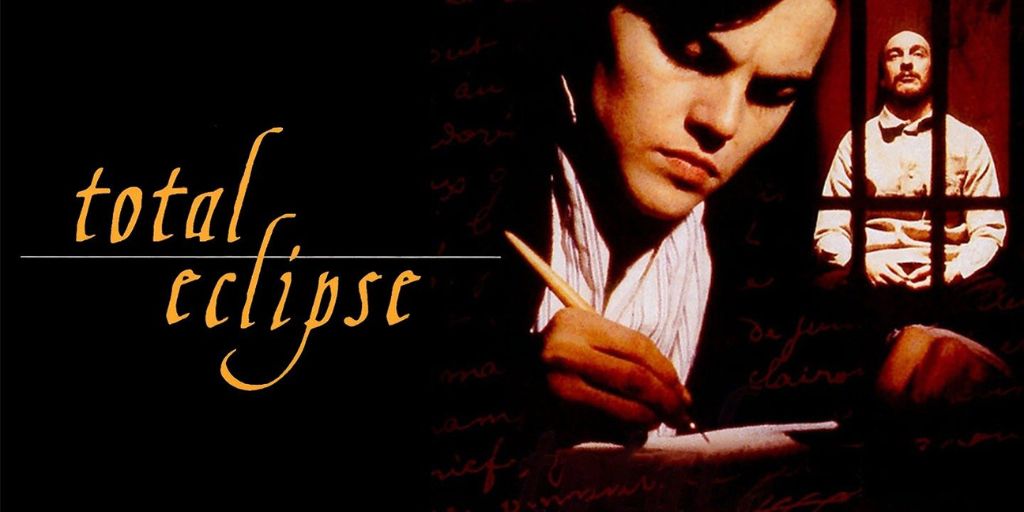
8. The Man in the Iron Mask (1998)
While the Chris O’Donnell version of the Three Musketeers story is undoubtedly superior, the more “serious” version from the 1990s certainly takes itself more seriously. DiCaprio plays both King Lewis XIV and his secret twin brother in this mostly uninteresting tale that was elevated above its status as a result of the actor’s post-Titanic popularity.
The musketeers (Jeremy Irons, Gabriel Byrne, Gerard Depardieu, and John Malkovich!) are motivated to leave their retirement to overthrow the evil despot. Despite playing two roles, DiCaprio doesn’t give much of himself in this film and seems strangely detached from the action, as if he wasn’t sure whether or not this was supposed to be his movie. The movie is too loud and chaotic to focus on and be much of anything.
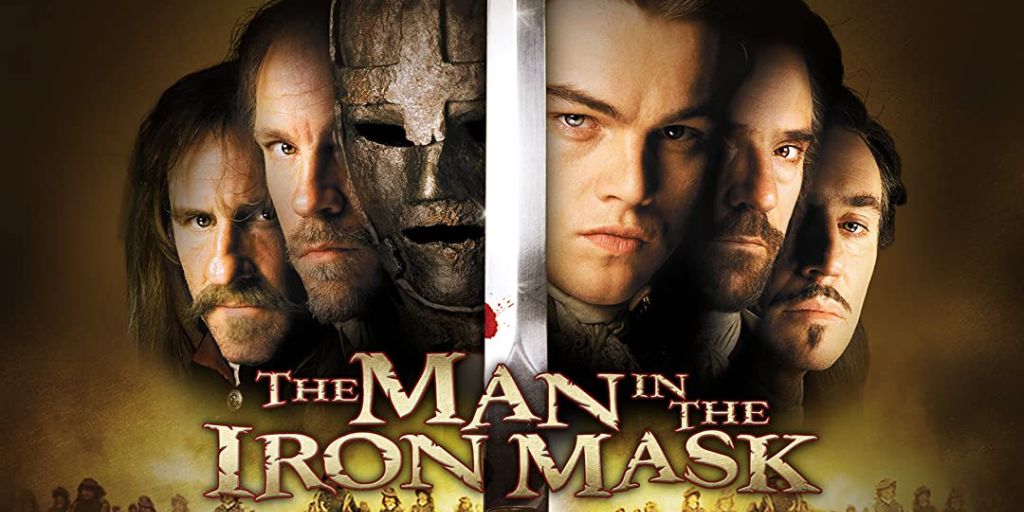
9. Don’t Look Up (2021)
You can see what about Adam McKay’s end-of-the-world satire would have attracted DiCaprio on paper. DiCaprio hasn’t done many comedies, so he may have been ready to flex those comedic talents. Climate change is a significant issue in the movie, and it’s a cause close to DiCaprio’s heart off-screen.
In fact, Christian Bale received an Oscar nomination for McKay’s most recent picture. However, the pairing turns out disastrously, and even though Leo is the one who is in the spotlight the entire time, McKay is more to blame than DiCaprio.
Although DiCaprio tries to give his scientific character a sense of purpose by having him long for his calm family life, McKay never lets things settle down enough for him to develop. DiCaprio, though, merely appears as hurt and frantic as the rest of the ensemble, despite the fact that he actually manages to flee with more dignity than some of them.
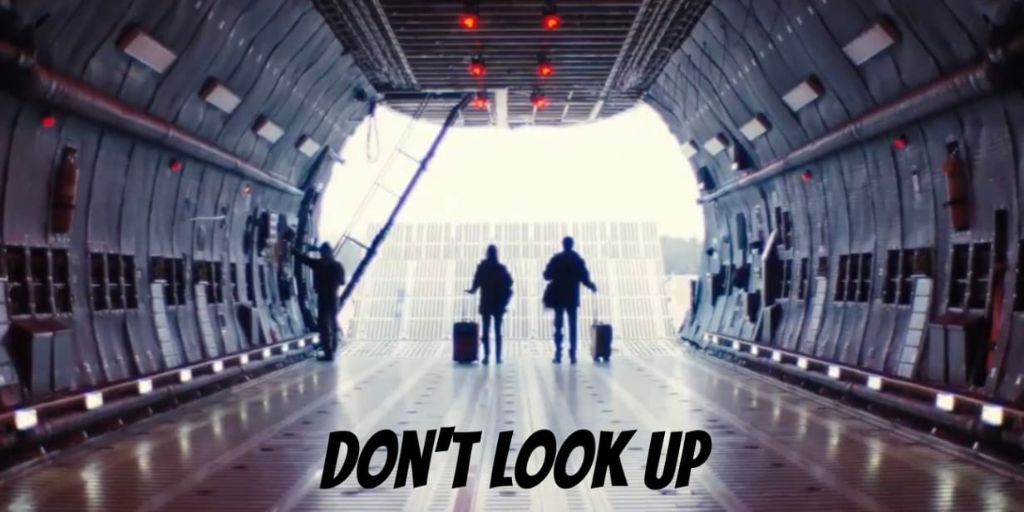
10. The Beach (2000)
The culmination of his career’s Leo Is Trying Too Hard After Titanic period. The Beach is a complete mess, with an unfocused DiCaprio performance and fussy, mostly confused direction from Danny Boyle. On the surface, this Danny Boyle misfire made sense — a well-reviewed book featuring a lead who’s wrestling with sanity while trying to survive on a remote island — but in practice, it was a complete failure.
(It isn’t Boyle’s worst film, but it may be the one over which he had the least influence.) After this, Leo’s following four films were either directed by Martin Scorsese or Steven Spielberg, and it was the last time he attempted to star in a big-budget film while still sporting the Titanic pretty boy appearance.
Boyle and DiCaprio, two artists who have each produced outstanding work, may not have been a good match. Hey, at least you get to see DiCaprio slay a shark. (DiCaprio would no longer engage in shark combat after this.)

11. The Basketball Diaries (1995)
The opportunity to immerse himself in the character of drug-addicted misery Jim Carroll and explore the origins of his addiction must have appeared quite fascinating to DiCaprio. Sadly, the film plays Carroll’s story strangely straight for reasons that are still puzzling 20 years later: at times, this feels more like a movie of the week about what happens to nice, young, white prep-school boys when they experiment with heroin than a piercing look into a damaged soul like Carroll’s.
Although DiCaprio gives it his all, and you wonder if he would have been even better in this five years later, the film only scratches the surface of a tale that has infinite layers. It demonstrated DiCaprio’s willingness to take on challenging material, but it didn’t necessarily mean he knew how to do it or, more importantly, who the ideal filmmaker was to accompany him on the journey. Yet.
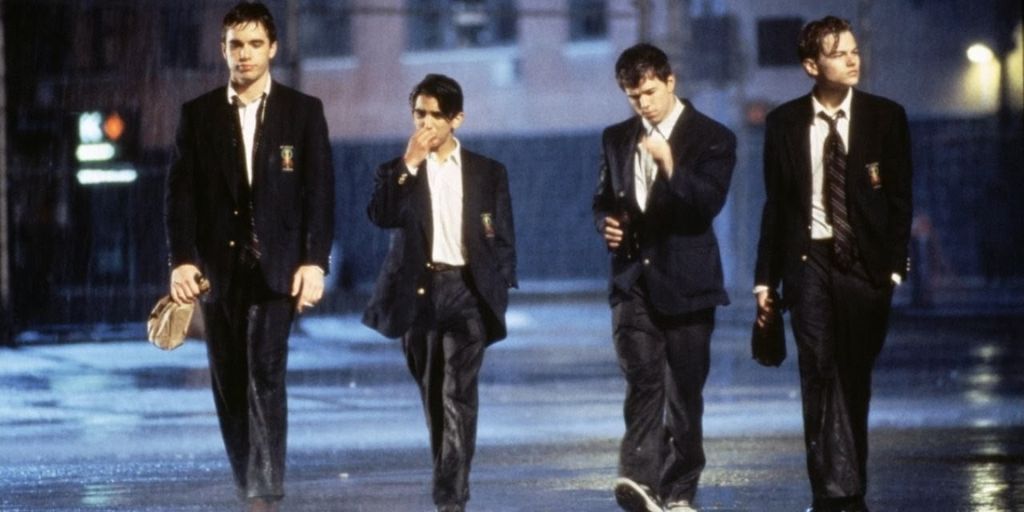
12. Blood Diamond (2006)
DiCaprio doesn’t do message-movie sincerity well because he’s too shifty, so in this extremely preachy and stiff “don’t purchase African diamonds” drama, he makes a weird pairing with Edward Zwick. DiCaprio finds it difficult to escape the restraint Zwick places on him as the Reluctant Hero since Zwick is such a conventional director.
Humphrey Bogart would have played this kind of part eighty years ago, and Leonardo DiCaprio just isn’t that kind of actor: He lacks that sort of unearned but unmistakable cockiness because he’s too jittery. DiCaprio isn’t the worst part of this film, which hasn’t aged well at all. Despite its positive message, it’s a part that looks to be outside of his acting abilities and comfort zone.
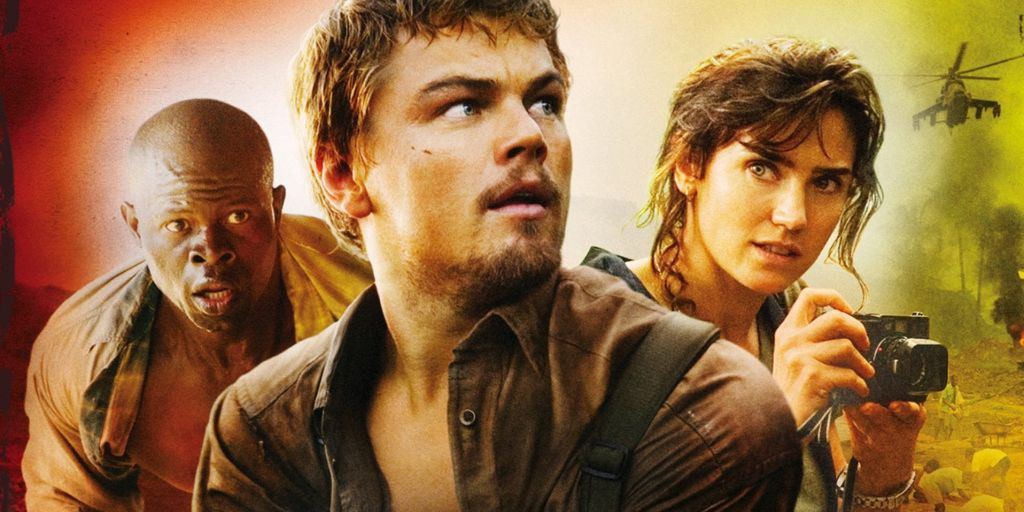
13. Body of Lies (2008)
Body of Lies is a second-tier Ridley Scott film, which means it is noticeably smooth without anything below. It is a rare commercial failure for DiCaprio. Leo plays a hotshot CIA agent who is pursuing a mysterious terrorist boss through Jordan and Iraq.
He also has to deal with a romantic subplot with a Jordanian nurse (Golshifteh Farahani), which is designed to humanize the problems in the area but actually acts as a cunning plot device once she is taken hostage by the villains. Body of Lies is a bland but competent piece of studio entertainment that pretends to be intelligent about U.S.-Middle East relations.
It features Russell Crowe, who also appeared with Leo in Quick and the Dead, as the CIA chief who leads a comfortable life back in the United States. Although DiCaprio gives the character enough grit and empathy, be honest—this might be the one big-budget film on this list that you completely forgot he was in.
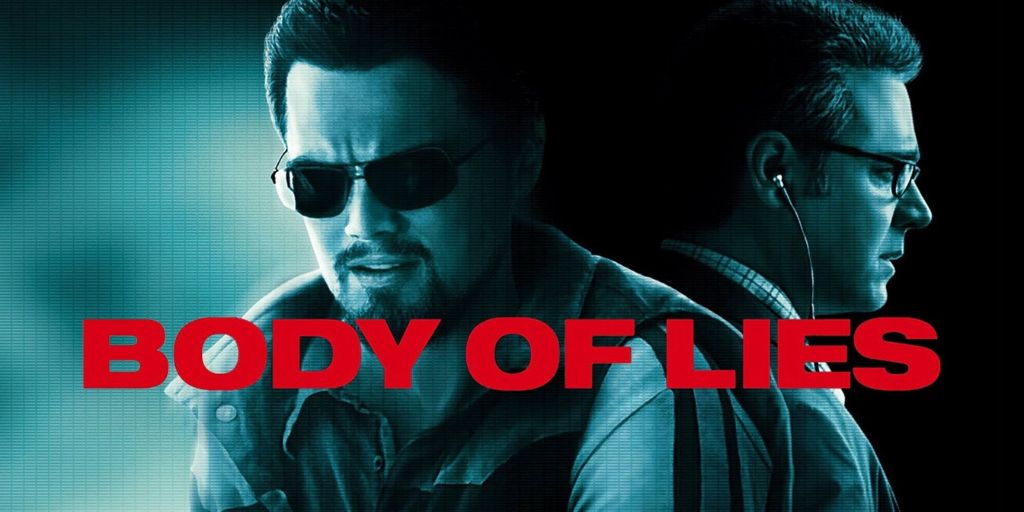
14. J. Edgar (2011)
In order to achieve a shared vision, DiCaprio as an actor, performs best when collaborating with filmmakers that have strong personal visions. Despite his talents, Clint Eastwood is not this kind of director. He’s the type of person to point the camera, take a few takes, and then hurry home for happy hour.
Although technology has its advantages, DiCaprio is not helped by it in this dispassionate portrayal of J. Edgar Hoover. DiCaprio is unable to fully let go as he would like to in the film since Hoover’s sorrow is subdued but not burning. The movie has the feel of the best hits of Hoover’s life. (Armie Hammer, who plays Clyde Tolson, Hoover’s lover-protégé, has the more interesting role.)
When Clint ordered “cut,” DiCaprio, who was trying to get inside Hoover’s skull, probably looked up in shock. We’re done. What? We only use that one, right? Finding the correct fit as a filmmaker is so essential to DiCaprio’s career. That wasn’t Eastwood.
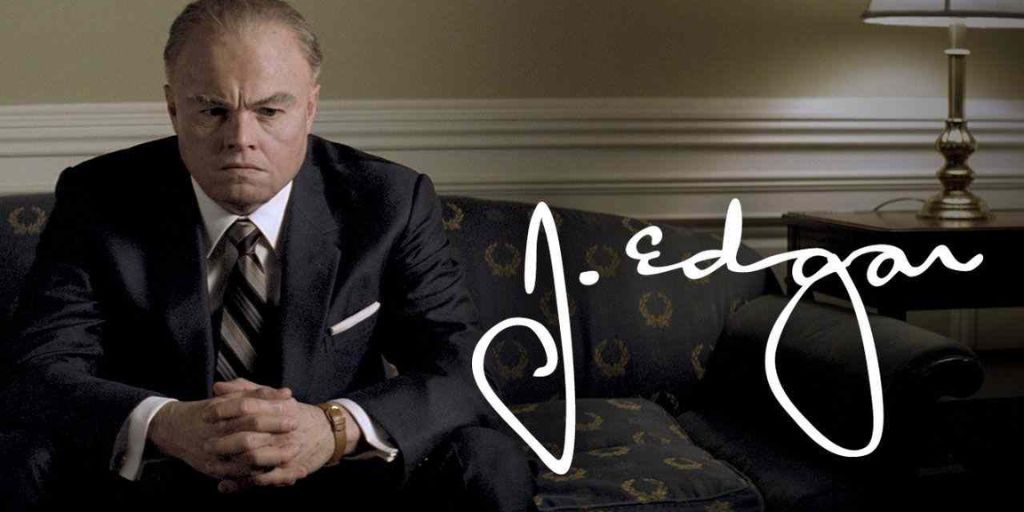
15. The Quick and the Dead (1995)
For both those in front of and behind the camera, this movie is a peculiar time capsule. When Sharon Stone appeared in it, Hollywood was still attempting to understand what to do with her after Basic Instinct. It was directed by Sam Raimi during his post-Evil Dead, pre-Spider-Man time. The Quick and the Dead never really progresses past its gimmicky “It’s a Western, but starring a lady!” idea, which is not all that surprising.
Apart from Raimi’s creative techniques of portraying one-on-one gunfights, the actors and director seem to have been put together for a high-concept hook. Regarding DiCaprio, he does just OK as “the Kid,” a cocky, charming gunslinger, but thank god he has grown above these types of throwaway roles.
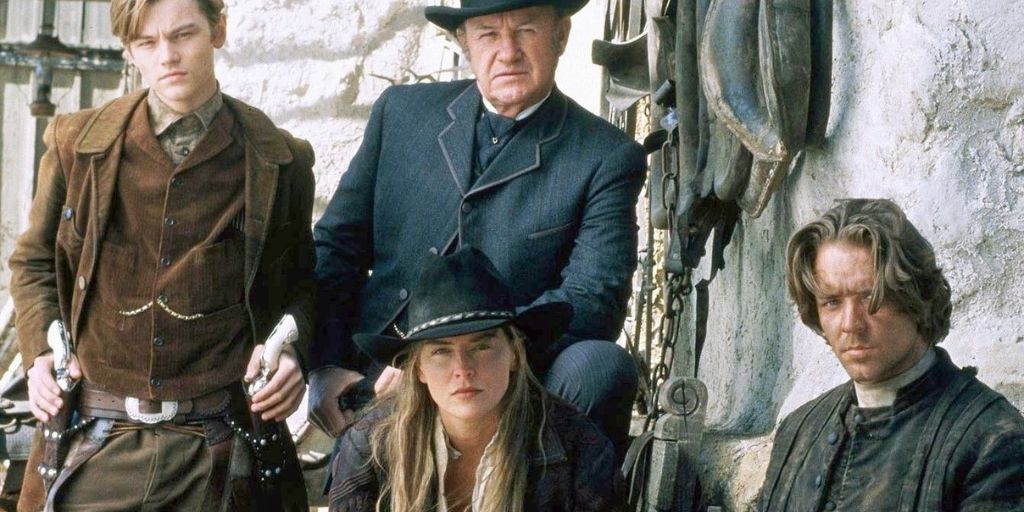
16. This Boy’s Life (1993)
Even though it’s still from DiCaprio’s early career, this is the 1993 film that wasn’t What’s Eating Gilbert Grape. This Boy’s Life, a film based on the memoir of author Tobias Wolff, stars Leonardo DiCaprio as a young Wolff who lives in 1950s Seattle with an abusive stepfather (a neck-popping Robert De Niro).
This is a coming-of-age story, but the movie never really commits to it; it tosses around the possibility that the boy’s stepfather might actually be trying to help before selling out and making De Niro’s character into a horror movie antagonist. With his De Niro sequences, DiCaprio still gets major props for more than holding his own: You could sense the impending violence.
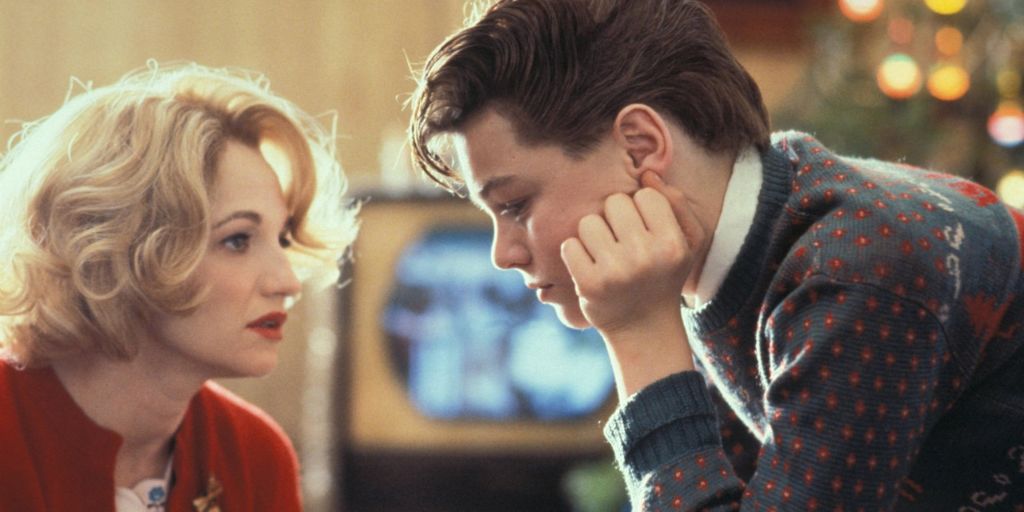
17. Gangs of New York (2002)
Leo is the “lead” in the first of DiCaprio’s ultimately successful partnerships with Martin Scorsese, yet he is weirdly inconsequential to the story as a whole. Daniel Day-Lewis’ enormous Bill the Butcher would have made it difficult for anybody not to be blown off the screen, but DiCaprio actually is blown off the screen in this scene; by the end, Scorsese nearly seems to have forgotten about him.
Only this Marty-Leo pairing gave the impression that DiCaprio was trying to establish his acting chops rather than uncovering the hurt, furious truth at the center of his persona. These two would undoubtedly succeed eventually.
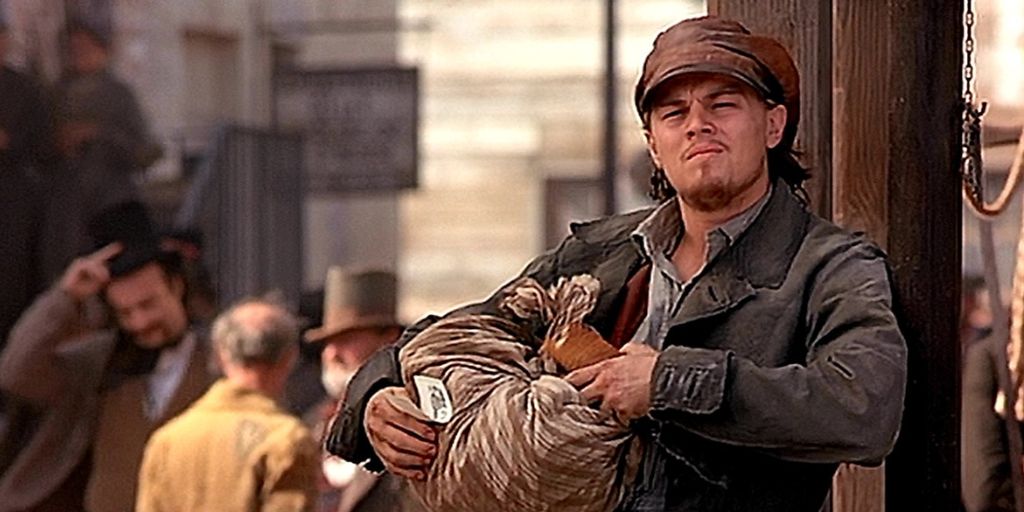
18. Celebrity (1998)
Leo made his first public appearance after the Titanic in a cameo in Woody Allen’s scathing comedy about, you guessed it, fame. DiCaprio has fun mocking the exaggerated perceptions of his success by playing a preening party-boy movie star who loses it. He gives the role, which could have been one-dimensional and just needed his inherent charm to garner a few chuckles, sex appeal, and real danger.
Allen subsequently remarked of DiCaprio, “Aside from being good-looking, he’s a fantastic actor, an actor up there with the best of them — De Niro, Pacino — a great natural. He is sincere, intense, and an excellent improviser.
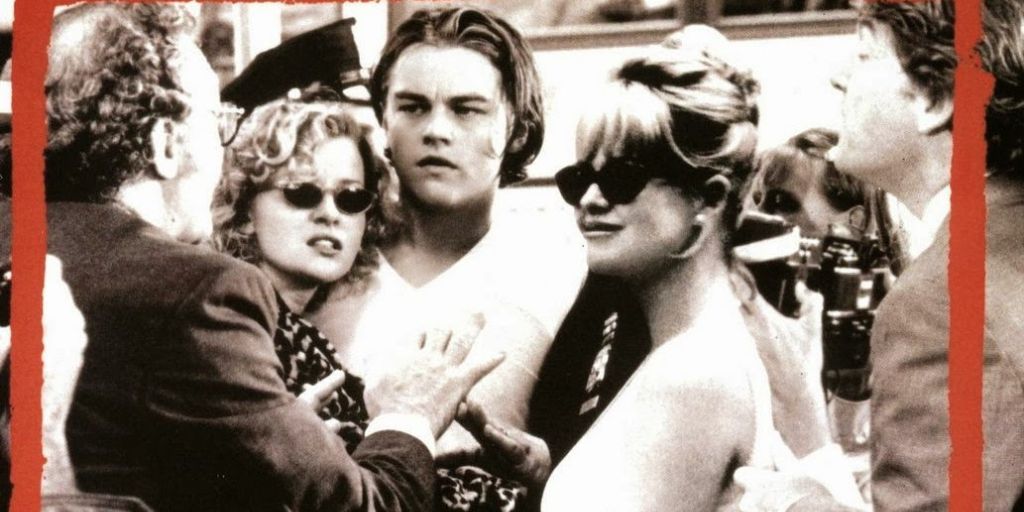
19. Django Unchained (2012)
Other than Leonardo DiCaprio, has there ever been an outstanding actor who significantly underperformed in a Quentin Tarantino film? Leo is OK as the cruel plantation owner Calvin Candie, one would assume, but the part is not a good fit for him.
Although he does his best to convey menace, he is likely the fourth most fascinating actor in his major role at the end since he is more of a physical actor than a verbal one. He does himself no favors by sparring with Christoph Waltz, who may have been created in a lab just to memorize Quentin Tarantino’s lines.
It’s a flamboyant role, but perhaps a little too ostentatious, especially given how entitled and under control Candie is. We hate to say it, but DiCaprio doesn’t exactly fit the role. Would this even make the list of the top 25 Tarantino film performances? No, we believe.
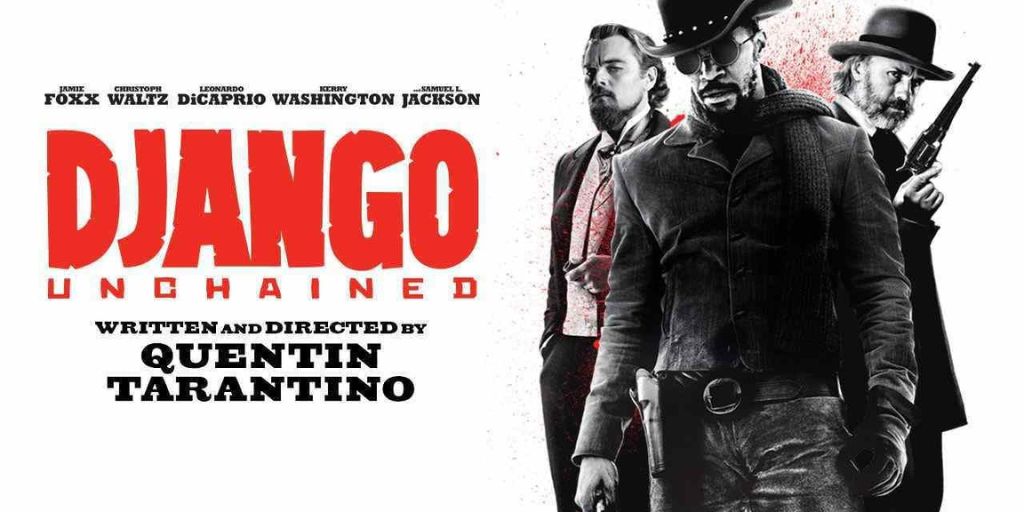
20. Revolutionary Road (2008)
Revolutionary Road, which was promoted as the reconciliation of Titanic’s fatal pair, heralds the beginning of DiCaprio’s brooding bad-love phase in which he played a number of characters who learn that there is darkness at the core of marriage. (Shutter Island and Inception, the other two movies in this category, are higher on the list.)
The movie adaptation of Yates’s first book is also significant for DiCaprio’s career since it came from a period when he was firmly establishing himself as a serious actor and figuring out how to use his juvenile appearance to portray immaturity and terror in failing adult characters.
This trait is on view in his depiction of Frank, a 1950s husband who is perplexed as to why his idyllic existence with his lovely wife, April (Kate Winslet), has turned out to be so unhappy. Even though Leonardo DiCaprio is excellent, Michael Shannon truly owns Revolutionary Road. Shannon’s scene-stealing performance as a troubled local guy launched his acting career.
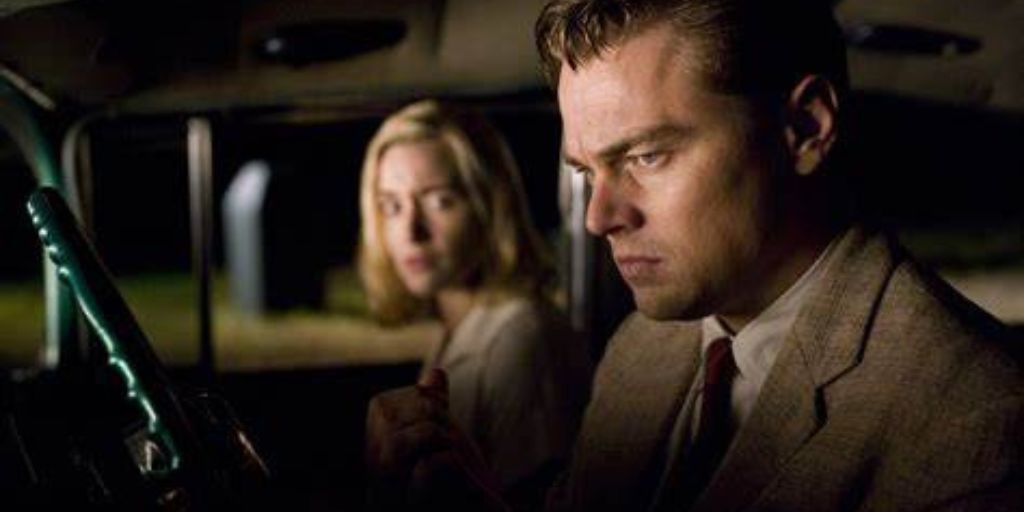
21. William Shakespeare’s Romeo + Juliet (1996)
This adaptation of Shakespeare’s tragedy is surprisingly subdued by director Baz Luhrmann’s outrageously flamboyant standards, but it gave Leonardo DiCaprio one of his best early heartthrob roles, portraying Romeo as just another A beach youngster with his heart on fire and his emotions bursting forth.
Leo was particularly skilled at capturing the spirit of what youthful love is like, with its incredible highs, euphoric infatuation, and irrepressible sexual impulses, towards the outset of his career.
He and Claire Danes have great chemistry in Romeo + Juliet, and their whirlwind, frail relationship is what makes them so heartbreaking together. A year later, DiCaprio would use the same grand theatrical strategy in a small picture about two crazy kids on an ocean liner.
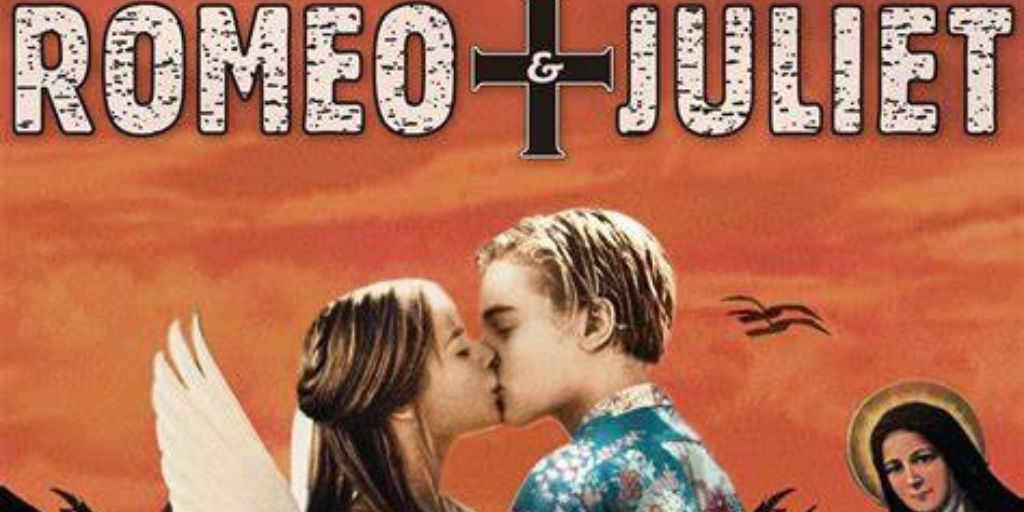
22. Marvin’s Room (1996)
As the trouble-making son of Meryl Streep, who is dealing with her dying father and a sister (Keaton) who has bone cancer and needs a donor, DiCaprio is thrust into the middle of some true acting giants, including Robert De Niro, Diane Keaton, and Meryl Streep.
He then steals the movie out from under them. The film is depressing and plain, but DiCaprio upends it by keeping it imbalanced, preventing it from becoming as predictable and theatrical as it could otherwise have. By the end of the movie, you realize that he isn’t just keeping up with this group; they are actually responding to him.
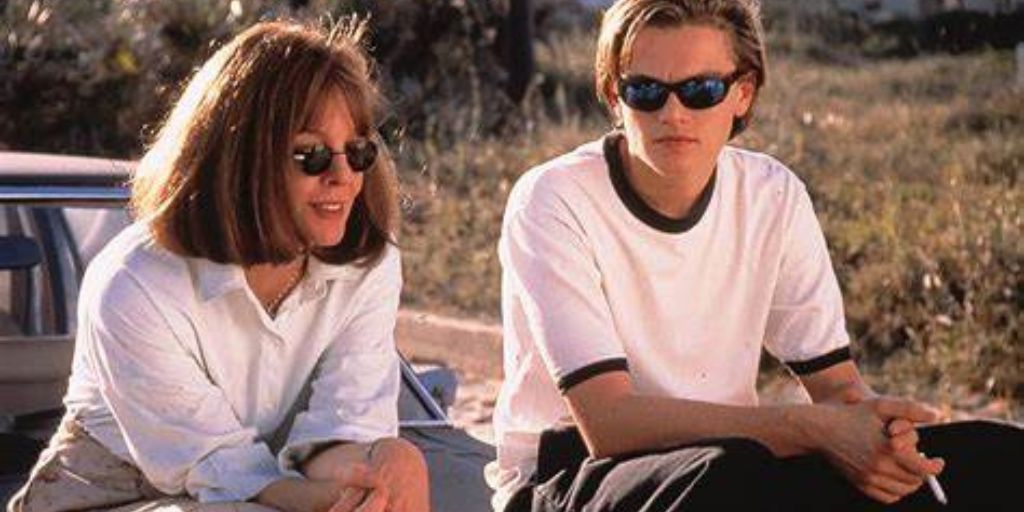
23. Catch Me If You Can (2002)
Given all the characters weighed down by problems that DiCaprio has portrayed, it was hilarious to see him in an underappreciated Spielberg movie portraying a blatant bullshitter. As the young con artist Frank Abagnale, played by Leonardo DiCaprio, who is quick on his feet and obviously having a great time, you can’t help but be swept along by him.
Although the performance works best when he’s having a breezy good time, DiCaprio always lets you see the fearful youngster underneath. Much of this derives from his sad-sack, broken-hearted father, played masterfully by Christopher Walken.
(Tom Hanks is his ideal counterpoint because He is the common man, Frank Grimes, who finds it unbelievable that the young person keeps getting away with everything.) We hope DiCaprio gives something this flimsy another shot: It fits him shockingly well when he surrenders to the will of a brilliant filmmaker.
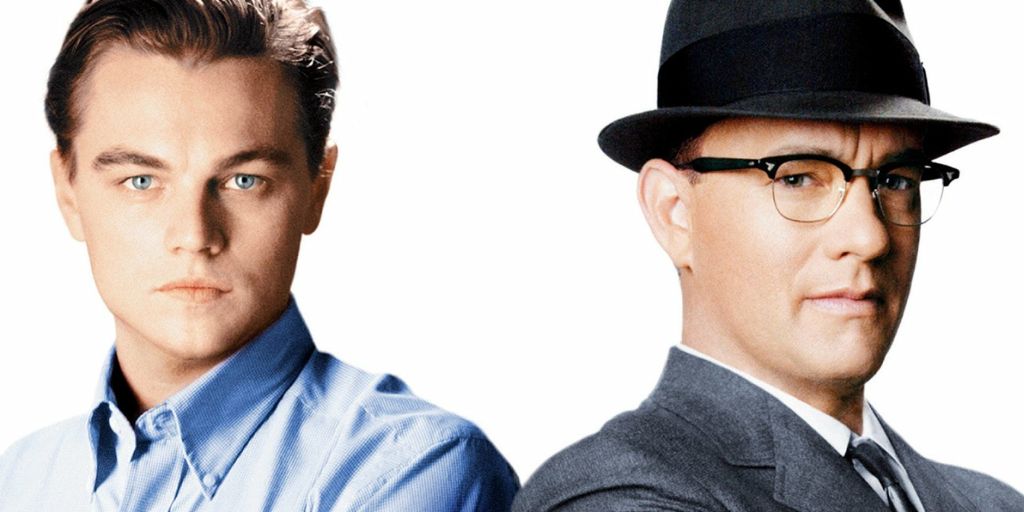
24. The Great Gatsby (2013)
The introduction of Jay Gatsby in The Great Gatsby, which debuted in May 2013, received special praise from Vulture writer Kyle Buchanan, who wrote, “It’s a scene that’s so over-the-top that it might have hit the moon, and when this magical moment happened on-screen, you had no choice but to laugh, cry, or applaud.”
As a matter of fact, we laughed and cheered: It’s one of the best scenes in recent movies where the director (Baz Luhrmann) and the star (DiCaprio) laugh out loud with the audience. Even if the original movie is tedious and wrong, that scene serves as the culmination of the entire movie, which is why DiCaprio is so good in this version.
DiCaprio displays the kind of movie-star brightness we simply don’t see much of these days as Gatsby, the unachievably impressive man of riches and prestige, while also hinting at the romantic duress that finally makes all of his accomplishments useless. Similar to Celebrity, DiCaprio plays into our adoring, envious perception of who he is, and he has a blast both reinforcing and ridiculing our idealized notions.
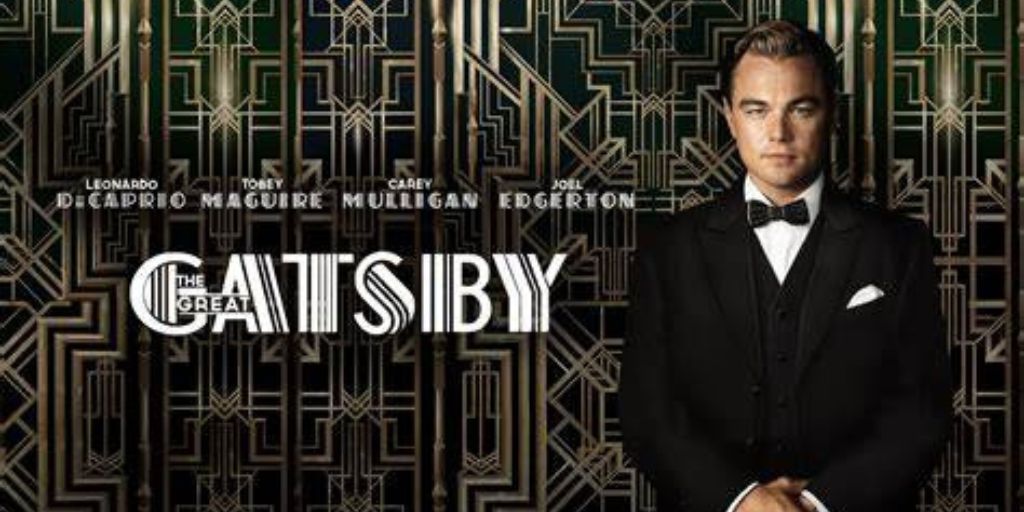
25. The Revenant (2015)
DiCaprio’s All Is Lost, and Cast Away are these movies. The Revenant, directed by Birdman Oscar winner Alejandro G. Iárritu, is a terrible story of survival in which a frontiersman in the 1820s faces three attacks in fast succession: a bear attack, a Native American ambush, and a betrayal by one of his friends (Tom Hardy) who leaves him for dead.
The Revenant is undoubtedly the most physically demanding performance of Leo’s career, with the actor grunting, straining, and fighting his way across harsh terrain to make it back to civilization. Leo’s character is a man of few words, but in a story, this primal, words don’t matter. In other words, The Revenant is great stuff, but because the performance has an unrelenting jackhammer intensity, it doesn’t contain the brilliant range of his most iconic roles.
His Oscar win was another instance of a well-respected actor receiving his Academy Award because he was “due” rather than for doing the best work of his life. However, it’s possible that after seeing this film, some viewers may cease complaining that DiCaprio lacks the weight to play tough characters.
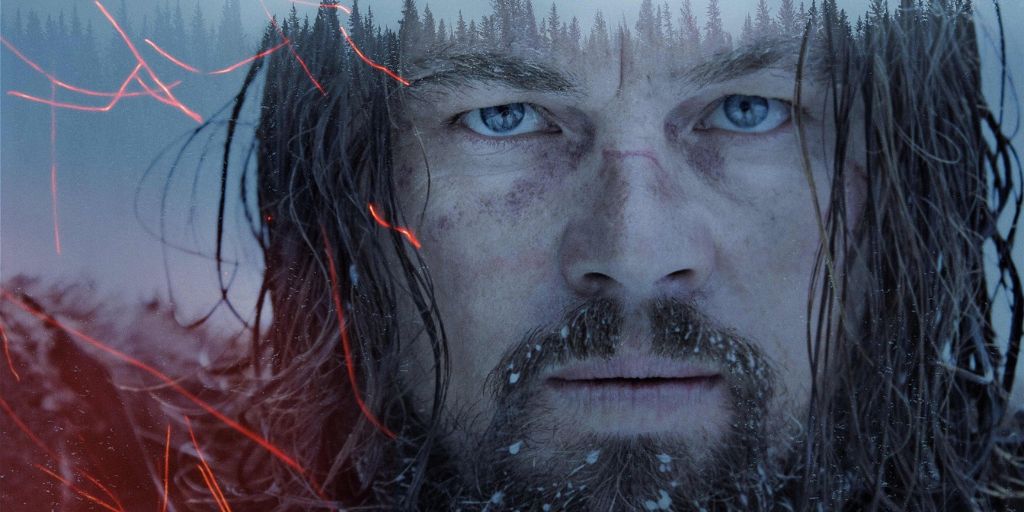
26. Inception (2010)
Inception, DiCaprio’s biggest box office success since Titanic, is his first real-event film since that James Cameron phenomenon. Interestingly, Inception is also his first summer box office success. We bring this up because, quite frankly, he’s the one at the center of it all, giving just the proper amount of soulfulness and sophistication to his portrayal as a thief who infiltrates people’s subconscious, which is part of what makes this thriller so enjoyable.
To DiCaprio’s eternal credit, he avoided turning his early success into a series of forgettable tentpole movies. In Inception, he discovered the elusive four-quadrant thriller with just the right amount of intelligence, emotion, and nuance. Dom Cobb isn’t a tragic guy because he lost his wife; rather, he’s a tragic figure because he never accepted it, and DiCaprio gives the character unending agony to go along with the film’s gorgeous VFX and twisting sci-fi notion. Although popcorn flicks aren’t really his thing, he can make them rather effectively.
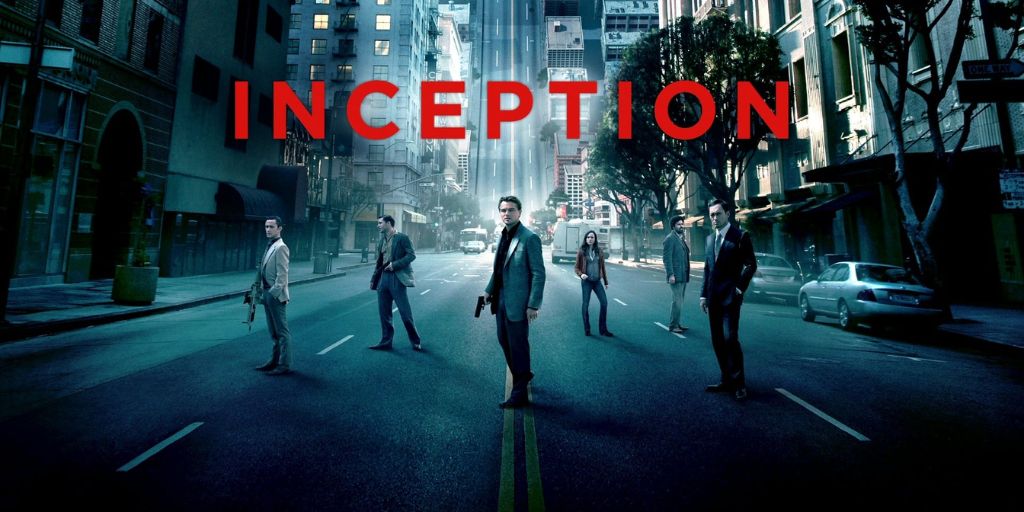
27. Titanic (1997)
One of the main things you may have noticed after watching Titanic was how young Leo and Kate appear. It’s simple to forget that they were actually just kids when they made this movie, which is still the second-highest-grossing film of all time because both have grown into important performers.
James Cameron, who wrote and directed the Terminator films, had a knack for creating relatable heroes, and with Jack, he created a spunky commoner who Leonardo DiCaprio converted from an immigrant stereotype into a fantastic love hero.
Leo was only 23 when Titanic debuted, which allowed him to give the role the reckless abandon and cocky, wide-open optimism that would have made him irresistible to a prim and proper upper-crust beauty like Rose (Kate Winslet).
Even if DiCaprio’s acting would get more nuanced as he grew older, this was the height of his star power. An entire universe of impressionable moviegoers was his for life when his character in Titanic passed away.
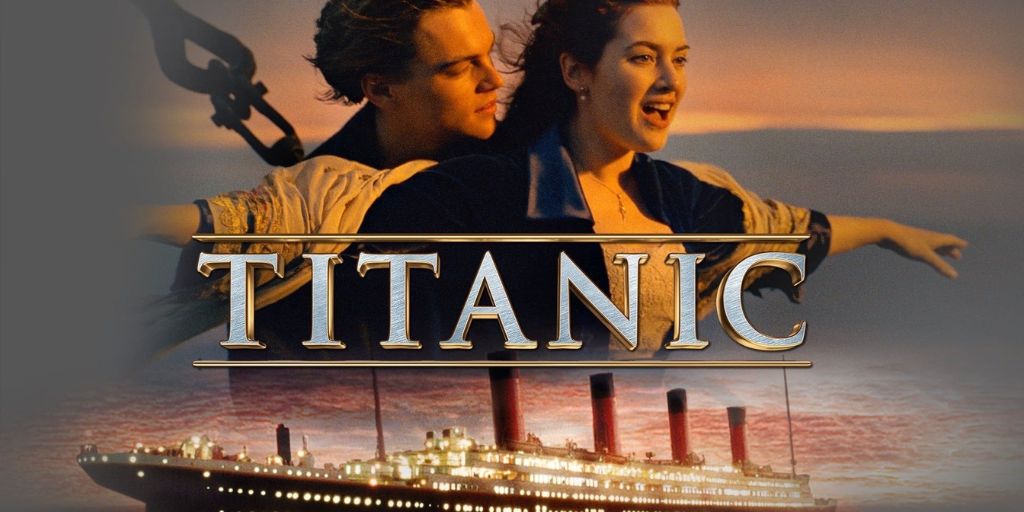
28. What’s Eating Gilbert Grape (1993)
Although DiCaprio’s first Oscar nomination was no cheap gimmick, it’s easy to be skeptical about performers portraying characters with illnesses or developmental challenges in order to receive Academy Award nominations. Johnny Depp’s character Gilbert’s younger brother Arnie is played by Leonardo DiCaprio, who doesn’t allow his character to be a simple, endearing variation on disability.
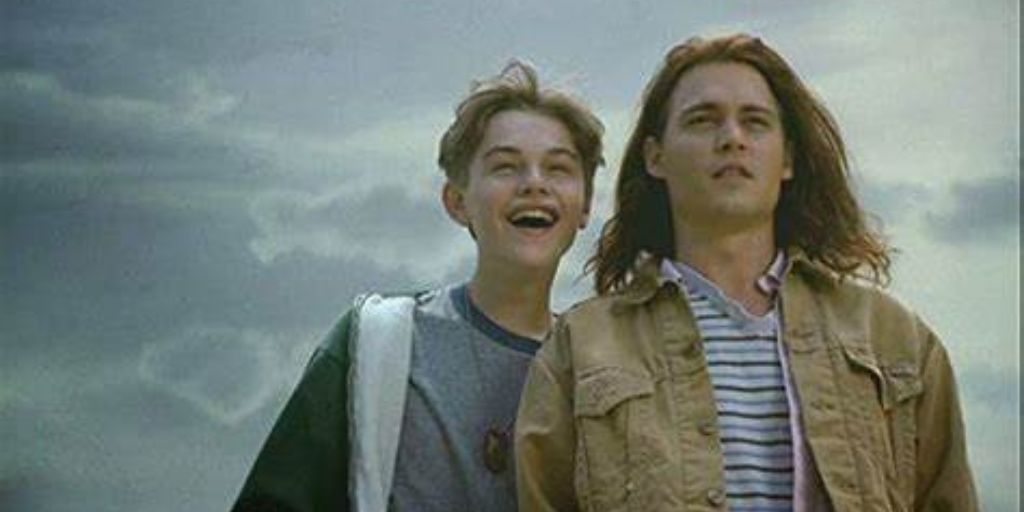
The beautiful thing about the performance is how complex and frustrating Arnie can be at times. The youngster is such a pain in the neck that we can see why Gilbert and his family are breaking under the strain of raising him.
This is crucial: DiCaprio gives Arnie a sloppy, charming decency that is really more sympathetic rather than elevating him (and coming off as patronizing in the process). Additionally, Leo and Depp’s on-screen chemistry gave off early signs that the young actor could hold his own against established talent.

